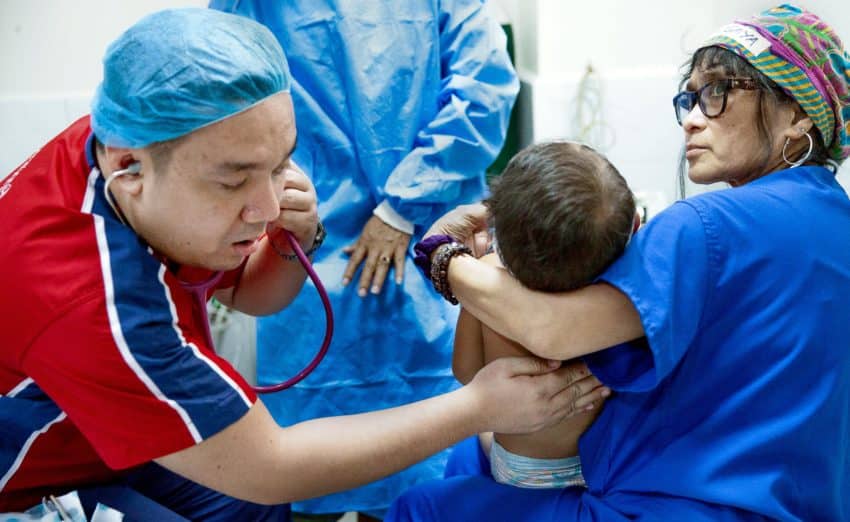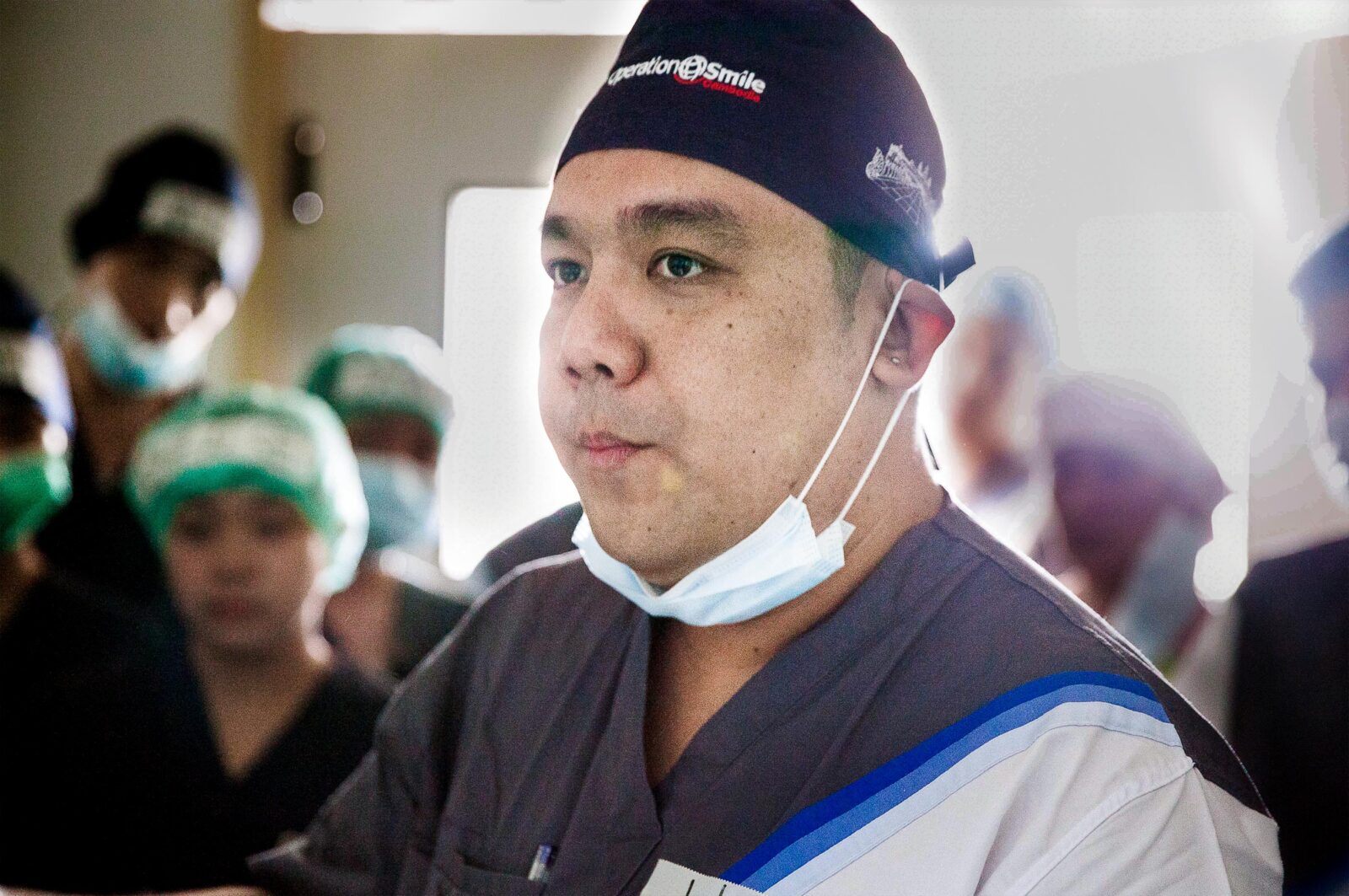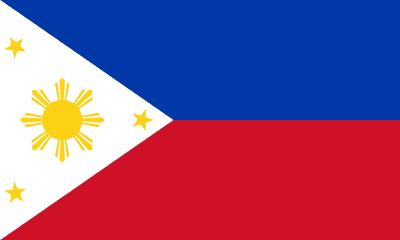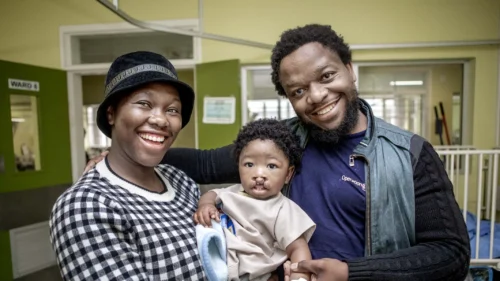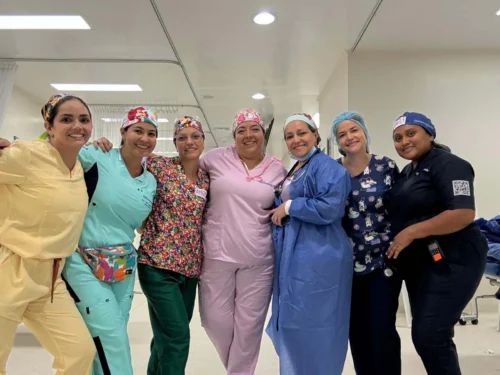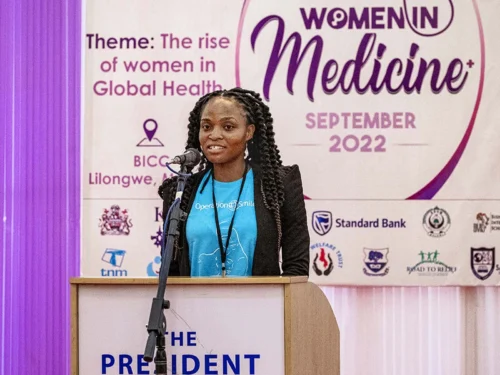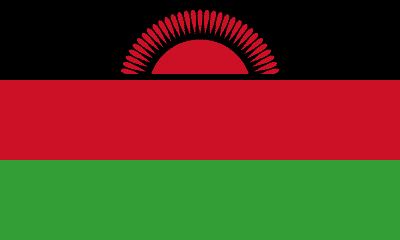Programme Coordinator Samantha Devito sat down with John Ryan Yap, a recovery room nurse from the Philippines, during a recent medical mission.
Read on for a question- and answer-style interview with John.
What inspired you to volunteer with Operation Smile?
I was inspired by all of the volunteers who selflessly give their time, talents, skills and knowledge to give children born with cleft conditions their well deserved smiles. Another reason is the overflowing love that parents have for their kids. Parents risk traveling far away from their provinces, without enough money to buy food or bus fare to return home, just to get their kids to a hospital where they have a chance at a free surgery provided by Operation Smile.
Why do you feel the responsibility to take care of these children?
As a nurse who has been blessed with good health, I feel it is my moral obligation to give back to the poor what they badly need, a smile. Filipinos are known for being resilient in all situations and despite all of the calamities we have faced, we still manage to smile.
Is there a particular moment or patient from a medical mission that will stay with you forever?
There was this one medical mission in Davao City where both the mother and her daughter had a cleft lip. They had lived in the mountains all their lives and were very poor. They had to walk for 10 hours to get to the national highway, wait there for a few more hours for a military truck to pick them up and then travel another four hours travel to get to the mission site. Upon hearing about their long journey, the surgeons offered to operate on both the mother and her daughter during the medical mission, but the mother refused, saying that nobody would be able to look after her daughter if she had surgery, so we only operated on the daughter. Imagine turning down the chance to have the free surgery that you have waited your entire life for so that your daughter can have that opportunity instead. Imagine traveling from your home to get to the mission site and not having enough money to buy food or a ticket to return home. This is one story that will surely stay with me forever. A mother’s love is immeasurable.
Why is early surgical care a critical need?
I think that the earlier care is provided, the better the outcome of surgery will be. Early surgery can help to prevent issues such as pneumonia, malnutrition, bullying and speech difficulties from affecting people born with cleft conditions. The earlier the care, the easier it is to learn how to speak properly. The earlier the care, the easier it is to avoid problem with eating and malnutrition. The earlier the care, the less likely someone will feel insecure about their appearance and the easier it will be for them to integrate into their peer group.
From your perspective, describe the three biggest challenges/barriers to care for patients in your country or places you have worked.
First, logistics of patients. Quite a number of patients in the Philippines come from far flung areas that are sometimes 10 hours away from medical mission sites.
Second, language barrier. During international medical missions, speaking the local language is one common challenge. Local interpreters are a huge help, but relying on interpreters can sometimes cause delays in care if an interpreter isn’t available right when one is needed.
Third, follow-up of patients after surgery. There will always be patients who don’t come back for post operative follow-up care. We all know that post operative check-ups are very important, but patients often lack the money to travel back to medical mission sites after the initial surgery.
How has volunteering with Operation Smile impacted you professionally and personally?
Operation Smile has helped to boost my confidence professionally and personally. Before volunteering with Operation Smile, I read medical books to understand how different types of surgical care was delivered. By volunteering with Operation Smile, I am able to witness, and more importantly, to be a part of this care delivery. As someone new to the field of nursing, I have learned so much from Operation Smile and the other volunteers, which has helped me to become a better nurse. All of the knowledge I have acquired from my experiences with Operation Smile I have brought back to my own hospital and shared with my colleagues.
Working with the other volunteers has greatly improved my social skills and taught me how to work with people from a variety of backgrounds. Each medical mission I have participated in has led to strong bonds with other volunteers, and I look forward to making those connections on each new medical mission I attend.
My experiences with Operation Smile have also inspired me to become a doctor, specifically, a paediatric intensivist in the future. Volunteering with Operation Smile has shown me that there is a great need for free medical screenings for kids and this is something I want to be able to provide.
